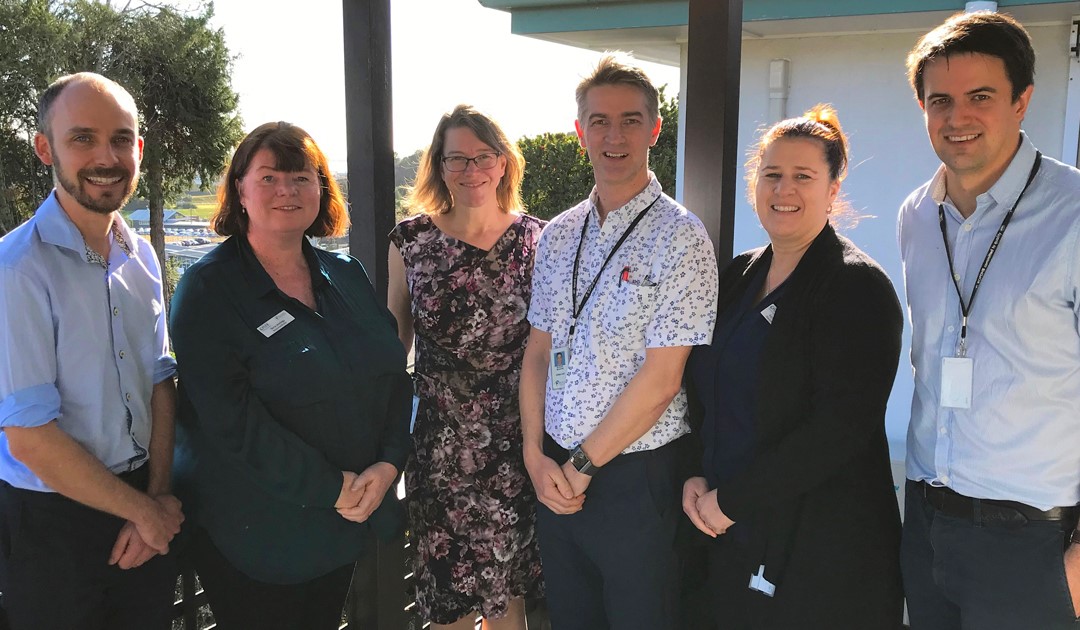News and notices Pānui
Walking the journey with patients – BOPDHB Renal Department
12 July 2021
Exciting changes are currently underway within the newly fashioned Bay of Plenty Renal Department. A key part of these changes is an increasing awareness of the need for patient-centred care with a focus on patient empowerment and bringing services closer to home for patients

Crucial to the development of the renal service is the growing partnership with Te Pare ō Toi; a relationship that is key to developing a service that is fit for purpose.
Historically, renal services in the Bay of Plenty were considered an offshoot to the Waikato DHB renal service with a hub and spoke model. Waikato doctors provided clinics for Tauranga and Whakatāne patients, as well as support for the satellite dialysis units at Tauranga and Whakatane.
Recently BOPDHB has employed four locally based Nephrologists: Dr Scott Crawford, Dr Richard Germann, Dr Gavin McHaffie and Dr Helen Eddington. They are supported by Renal Nurse Practitioner Terry Jennings, Renal and Clinical Nurse Manager Katie Johanson and a wider renal nurse team.
"Waikato DHB have looked after the BOPDHB for a long time, and although we still rely on them for some clinic provision and allied services, we are looking to develop our own independent department. We are keen to operate a 'Closer to home, look after our own' philosophy," Scott explains.
A patient centered model is what the renal team are focusing on, so that each renal patient is presented with resources to inform, educate and empower them in their health journey, and have the facilities available for them to undergo treatment in their own Whenua.
Providing a service that is close to home is important to Scott and the team. "It's our job to walk alongside our patients," he says. "We are focused on creating meaningful pathways and systems to support that and to address longstanding inequities."
"Patients now see the same faces who get to know their stories and what they have been through. We are part of their journey. Relationships you form with your people must be a legacy. Often affecting many members of a Whanau. We need to create something that is intergenerational, a system where the next generation look at how we treated their Mum and Dad."
"We are now doing clinics in Whakatāne every week – our patients see the same team. They get to know us, and we learn from their rich lived experiences with renal disease".
Already, the team have day-to-day clinical responsibility for patients with chronic kidney disease and on dialysis who live in Eastern Bay of Plenty. With time, this will extend to looking after renal patients within the Western Bay as well. The team can now provide an on-call point of contact for local GP's and other allied disciplines, rather than them having to call Waikato DHB for advice. "By empowering our colleagues through education, support through easy access to advice, discussion, and debate; we hope that we can address the escalating burden of kidney disease in the BOP".
The model of care adopted by the Renal service applies the principals of Te Whare Tapa Wha (Māori Model of Health) with its key corner stones of Taha tinana (physical health), Taha wairua (spiritual health), Taha whānau (family health) and Taha hinengaro (mental health). It is from this tirohanga (viewpoint) of people and health that we can achieve more meaningful outcomes for patients, whānau and communities.
He aha te mea nui o te ao?
He tāngata, he tāngata, he tāngata
What is the most important thing in the world?
It is the people, it is the people, it is the people
